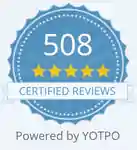Emotional Intelligence: Understanding and Managing Your Emotions
“While being book-smart might help you pass tests, emotional intelligence prepares you for the real world by being aware of the feelings of others as well as your own feelings.’’
- HANNAH OWENS, LMSW -
In today’s fast-paced world, Emotional Intelligence (EI) has become a crucial skill set for managing personal and professional relationships. Understanding and managing your emotions not only improves your mental and well-being but also enhances your interactions and relationships with others. In this blog, we’ll explore what emotional intelligence is, why it matters, and provide practical tips for improving your own EI.


What is Emotional Intelligence?
Emotional intelligence, referred to as emotional quotient or EQ, involves the capability to comprehend, utilize, and regulate your emotions constructively. This skill aids in stress reduction, effective communication, empathy with others, tackling challenges, and resolving conflicts. EQ is essential for forging robust relationships, excelling in academic and professional settings, and realizing both your career and personal aspirations. Additionally, it assists you in engaging with your emotions, transforming intentions into actions, and making well-informed choices about your priorities. [1]
Emotional Intelligence involves 4 key components: [1]
- Self-awareness is recognizing your own emotions and how they influence your ideas and actions.
- Self-management entails healthily managing your emotions, adapting to changing situations, and conquering obstacles.
- Social awareness is understanding other people's feelings, wants, and worries, detecting emotional signs, and feeling at ease in social situations.
- Relationship management includes developing and sustaining positive relationships, speaking clearly, motivating and influencing people, working successfully in groups, and managing conflict.
Why Does Emotional Intelligence Matter?
High EI improves the physical and psychological health of people and encourages academic and business performance (Bar-On & Parker, 2000). [2]
- Core Competency: Emotional intelligence (EI) is essential for personal and professional success, particularly in professions that require intensive emotional labor.
- Performance and Success: Studies suggest that individuals with higher EI tend to outperform those with lower EI in various life aspects, independent of IQ.
- Education Impact: There is a strong push for integrating EI education in schools to nurture emotionally intelligent adults.
- Interpersonal Relations: High EI significantly enhances interpersonal relationships, increasing empathy, cooperation, and social skills.
- Health Connections: EI is crucial in managing stress and emotional challenges, which affects physical health by impacting conditions like hypertension and heart disease.
- Overall Benefits: Developing EI fosters numerous positive traits, such as resilience, communication, and motivation, contributing to improved health and success.
How to Cultivate Your Emotional Intelligence [3]
Listen actively: Paying attention to another person's body language, the tone and the tempo of their speech may help you detect the speaker's emotional state at the time and any signals they are conveying. To practice active listening, allow the other person's train of thought to flow uninterrupted, as this promotes open communication and fosters a climate of trust and acceptance.
Recognize your stress triggers: It's important to know the situations, people, and environments that provoke emotional responses and disrupt your calm. Maintaining a journal can help identify stress sources, or you could make a list detailing a) Specific circumstances where you're likely to feel scared, powerless, or overwhelmed; b) People, such as toxic individuals, friends who do not respect boundaries, or coworkers who attempt to impose their beliefs.c) Environmental situations, such as crowded or noisy areas.
Use emotions in a positive wayBecoming more open to our emotions is important, but it's also key to learn how to leverage them for our benefit instead of letting them dominate us. First, avoid judging your emotions as good or bad. Think of them as useful information that can help guide what you do (Bradberry and Greaves, 2009). Focus on what you can change and improve. This helps prevent feeling stuck in a cycle of bad feelings and allows you to take clear, purposeful actions. Ensure to set aside time for activities that help clear your mind, like exercising, doing yoga, meditating, or just relaxing. These can help refresh your mental state.























